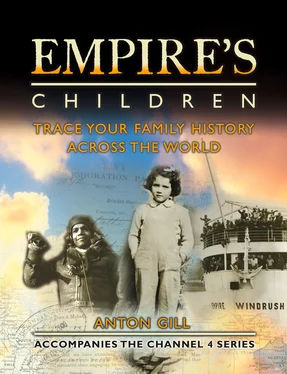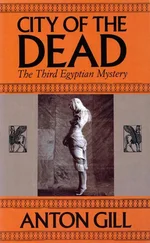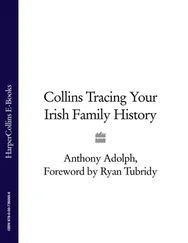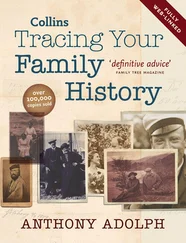The victims of the bombs in London, as they would have been in any concentrated multi-ethnic community, were random ones. Several members of what we still call ethnic minorities, including Muslims, inevitably died alongside ‘native’ Britons – something the bombers must have known. The hospital doctors and nurses who looked after the injured counted many non-ethnic Britons in their number. There was little racist reaction: we were united in common shock, outrage and grief. Ironically the most naked prejudice today – often stirred up by sections of the press – is against immigrants from the former Soviet bloc. But there is no stopping the tide, or the constant fluidity of demographics. The British Empire aside, an article appeared in the Evening Standard on 13 November 2006 pointing out that one-third of Londoners today were born outside Britain. This is a good thing. We should not forget that immigration has essentially enriched the country, not threatened or impoverished it. We had better get used to it, and the good news is that, slowly but surely, we are. This is only fair, since the British are a mongrel race anyway – and it is arguably that which has given them their edge in the past.
Britain is, generally speaking, a tolerant nation, though racism in many forms still exists. A thirty-five-year-old black London cabbie recently told me that when he was doing ‘the Knowledge’ his examiners – mainly ex-policemen – would tell him to drive to such destinations as Black Boy Lane (N15) and Blackall Street (EC2). However, there are some positive signs. About a year ago, I was pleased, if not 100 per cent convinced, by the optimism of a British-born Pakistani friend, who has had her share of racial abuse, who told me that she felt she was now living in a country whose institutions had become much more liberal in the last decade or so. She is about forty, and it seems to me, half a generation older, that a growing familiarity with other cultures is leading to a greater sense of ease. Many people have a South Asian doctor. Almost all city-dwellers have a South Asian corner shop or newsagent, or have eaten at one time or another in an Indian or Chinese restaurant. London probably has the greatest choice of cuisines of any city in the world, and Birmingham certainly has among the very best Indian restaurants. Many of our sporting heroes and heroines, whether they are athletes, cricketers or footballers, are of South East Asian, African or Afro-Caribbean origin. The Afro-Caribbean contribution to popular music since the late 1940s has been nothing short of revolutionary. Famously, chicken tikka masala (devised with the British palate in mind) has supplanted fish and chips (originally a French concoction) as the ‘national dish’.
It is probably true to say that most people born since, say, the mid-1960s – people who are now middle-aged – have greater tolerance than their parents’ generation, and their children will hopefully be more tolerant still – on both sides. After all, a large number of people of African, Afro-Caribbean and South Asian stock living in Britain today were born here, the children, grandchildren and great-grandchildren of Empire, and the flowers on the grave of that once mighty organization. And if it is depressing to reflect that the current leader of the British National Party was only born in 1959, it is also worth remembering that he was influenced in youth by his parents, and that the BNP has nothing like the clout of, for example, its Austrian or its French counterparts (the latter itself inexorably losing ground), and that Britain can at least be proud that it has never contained a political party of the extreme racist right which has had more than a derisory following, even in areas where ‘blacks’ now outnumber ‘whites’. When the BNP leader was recently (in November 2006) acquitted (by an all-white jury) of charges of racial incitement, the official reaction of the government was an undertaking to reexamine ‘race hate’ laws.
There are still spheres of official life in Britain that are tainted by institutional racism, but in other public areas our record is good. In the sixties and seventies, sitcoms such as Love Thy Neighbour and Till Death Us Do Part dealt uncomfortably with the existence of racism. Although written from an ostensibly liberal point of view, and aspiring to show as ridiculous the characters who exhibited racism, all too often it was the non-European immigrant characters who were the butts of the jokes, and an uneasy sympathy sometimes bolstered the unpleasant protagonists. Such shows now seem to belong to a different planet. British television has nurtured a number of Asian and Afro-Caribbean sitcoms and series – from Empire Road by Michael Abbensetts and broadcast in the late 1970s to Meera Syal’s The Kumars at No. 42 and Goodness Gracious Me. That television is almost painfully aware of its responsibility is borne out by an article by Mark Sweney in the Guardian of 9 November 2006, detailing the results of an investigation carried out by the Open University and the University of Manchester for the British Film Institute (entitled ‘Media Culture: The Social Organisation of Media Practices in Contemporary Britain’), which found that programmes such as Coronation Street, A Touch of Frost and Midsomer Murders have little appeal for members of the non-white ethnic minorities resident in Britain. It is a difficult gap to bridge, for portrayal of the predominantly white communities in the latter two programmes is still valid; oversen-sitivity to the sensibilities of ethnic minorities could be detrimental to harmony.
Britain has a good record too in the field of television journalism, at least in the area of news presentation, where, especially at the BBC and Channel 4, a large proportion of presenters in all fields belong to non-white ethnic minorities. This invites very favourable comparison with the situation in most other European countries. France, for example, has one black female newsreader on France 3, though ethnic minorities are better represented on the new twenty-four-hour news service. In politics and sport, Africans, Afro-Caribbeans and South Asians enjoy a high profile. This is not necessarily new. The first Asian MP, Dadabhai Naoroji, a Parsi, was Liberal Party MP for Finsbury Central for three years from 1892. Maharajah Kumar Sri Ranjitsinji Vibhaji made his cricketing debut for Sussex in 1895. Not that such men’s achievements were anything but unusual for decades to come; nor were either politics or sport untainted by racism. In the year Naoroji lost his seat, Sir Mancherjee Bhownaggree won Bethnal Green for the Conservatives. Bhownaggree, a Parsi lawyer, was far from radical. He supported British rule in India and earned the nickname ‘Bow-the-knee’ from his Indian opponents. But the MP he replaced, a trade unionist called Charles Howell, was indignant that he had been ‘kicked out by a black man, a stranger’. Seventy-three years later, the Conservative MP Enoch Powell distinguished himself by delivering perhaps the most racially inflammatory mainstream political speech of modern times.
In sport, as recently as 2004, the former player and manager Ron Atkinson, who twenty-six years earlier had distinguished himself by the pioneering introduction into his West Bromwich Albion team of three Afro-Caribbean players – Brendan Batson, Laurie Cunningham and Cyrille Regis – disgraced himself when commentating by describing the black French player Marcel Desailly as: ‘He’s what is known in some schools as a fucking lazy thick nigger.’ For all that this may have been an isolated event, such a lapse in public can no longer be tolerated and Atkinson lost his jobs at ITV and on the Guardian instantly. The athlete Linford Christie has pointed out that when he won races, the press described him as a British athlete; when he lost them, he was either an immigrant or a Jamaican.
Читать дальше












